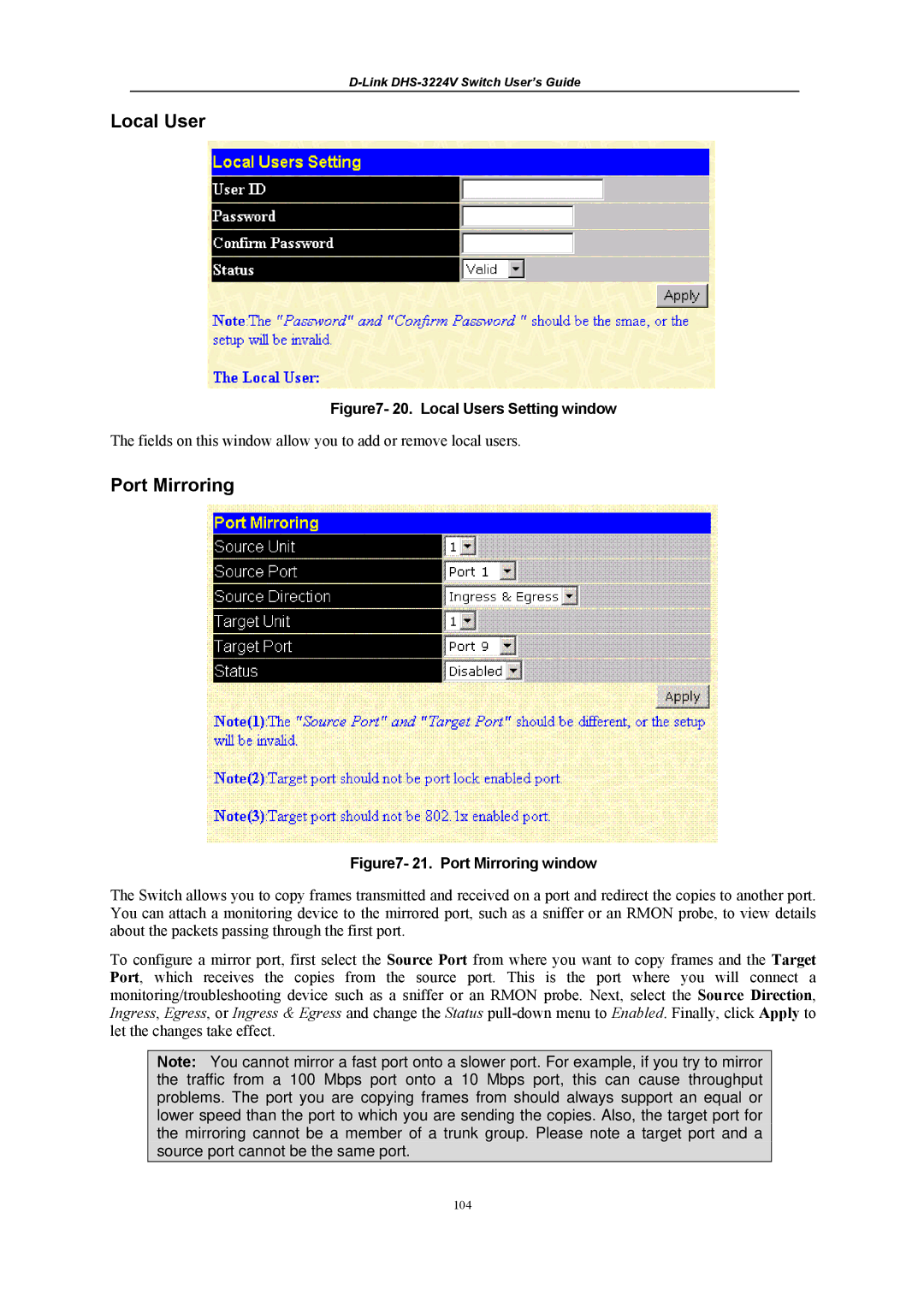
D-Link DHS-3224V Switch User’s Guide
Local User
Figure7- 20. Local Users Setting window
The fields on this window allow you to add or remove local users.
Port Mirroring
Figure7- 21. Port Mirroring window
The Switch allows you to copy frames transmitted and received on a port and redirect the copies to another port. You can attach a monitoring device to the mirrored port, such as a sniffer or an RMON probe, to view details about the packets passing through the first port.
To configure a mirror port, first select the Source Port from where you want to copy frames and the Target Port, which receives the copies from the source port. This is the port where you will connect a monitoring/troubleshooting device such as a sniffer or an RMON probe. Next, select the Source Direction, Ingress, Egress, or Ingress & Egress and change the Status
Note: You cannot mirror a fast port onto a slower port. For example, if you try to mirror the traffic from a 100 Mbps port onto a 10 Mbps port, this can cause throughput problems. The port you are copying frames from should always support an equal or lower speed than the port to which you are sending the copies. Also, the target port for the mirroring cannot be a member of a trunk group. Please note a target port and a source port cannot be the same port.
104
